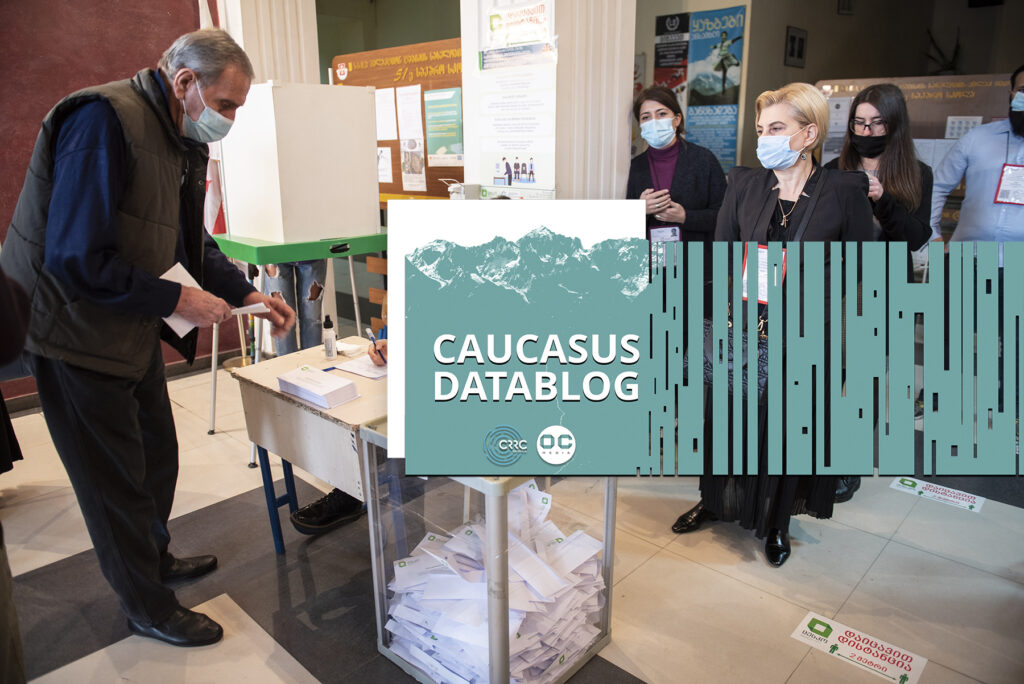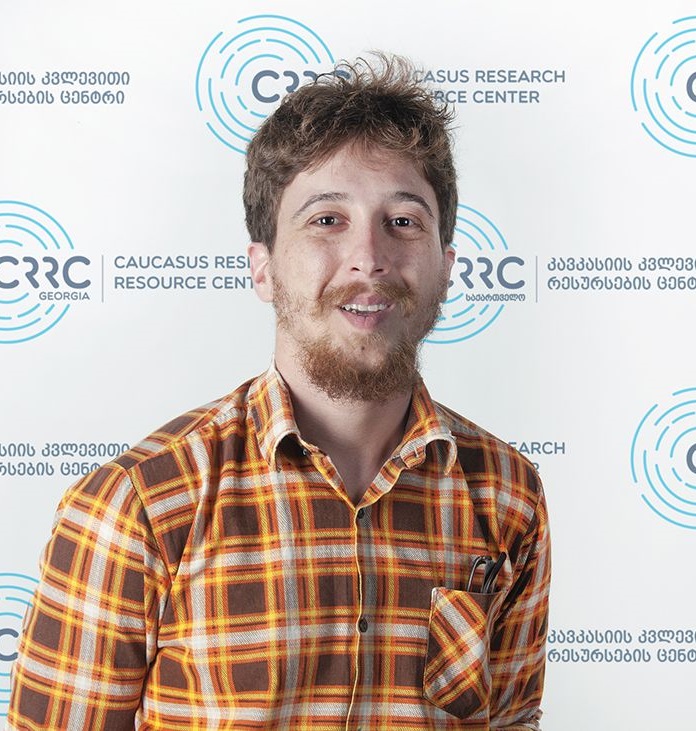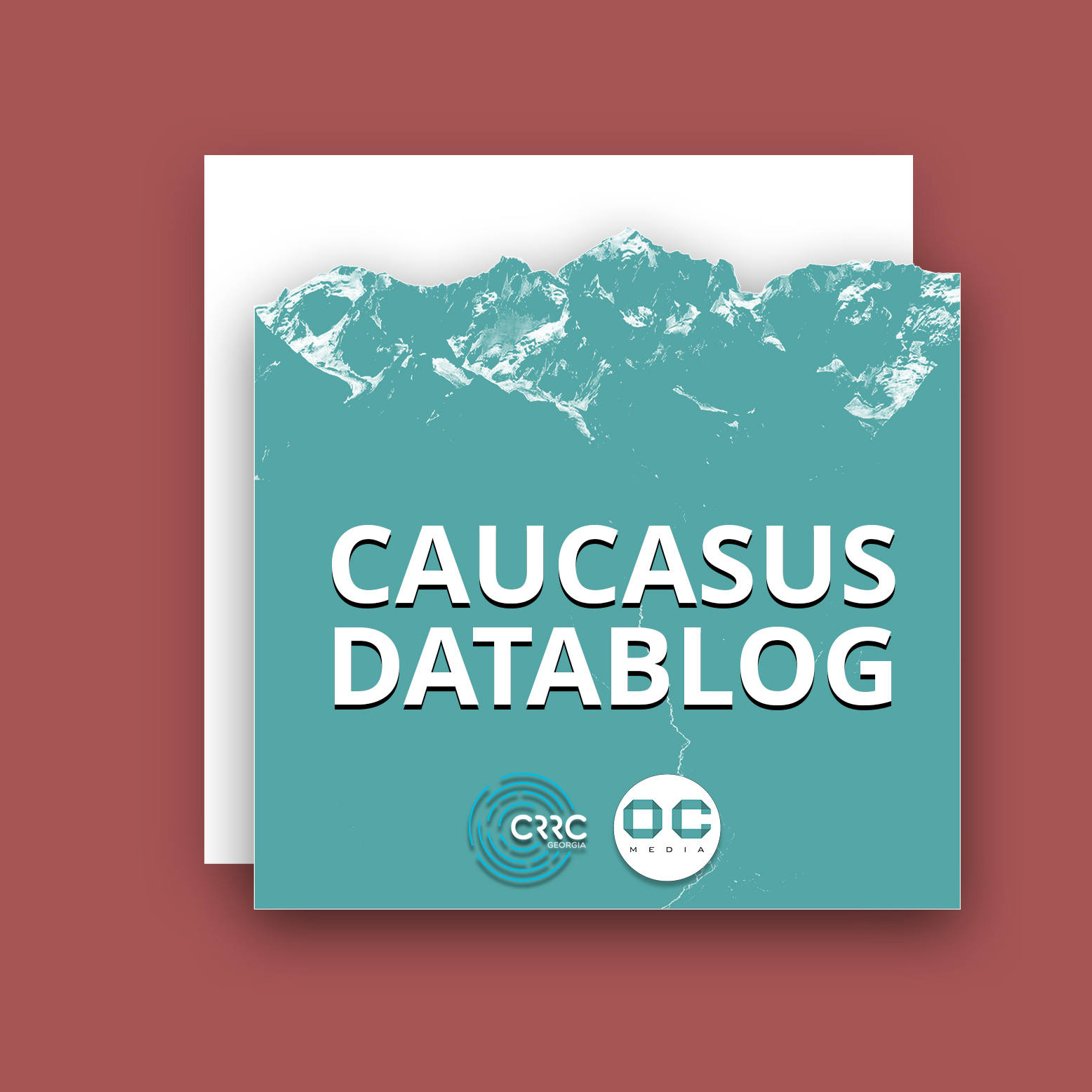Local elections are set for 2 October, yet a newly released CRRC and NDI survey on Georgian politics shows that 51% of voters identify most closely with no party in particular. For parties, this presents an opportunity to try to win over the half of the public which views no party as closest to them. But what do voters care about?
The data suggest people are most concerned about roads, the water supply, and the environment in their communities. As the expression goes, politics are local, and the data suggests the importance of different issues varies significantly by settlement.
What are the issues?
Overall, the most important public goods issue for the Georgian public is roads, with 30% of the public naming this as one of the most important issues. This is followed by water supply, with 22% mentioning this issue. In third comes pollution and the environment, with 12% of the public reporting this is the most important issue for them.
The importance of different issues has fluctuated over time. Fewer people report that roads and the water supply are among the most important public goods issues in their community compared with in 2015. The importance of the environment has declined compared to December 2018 as well.
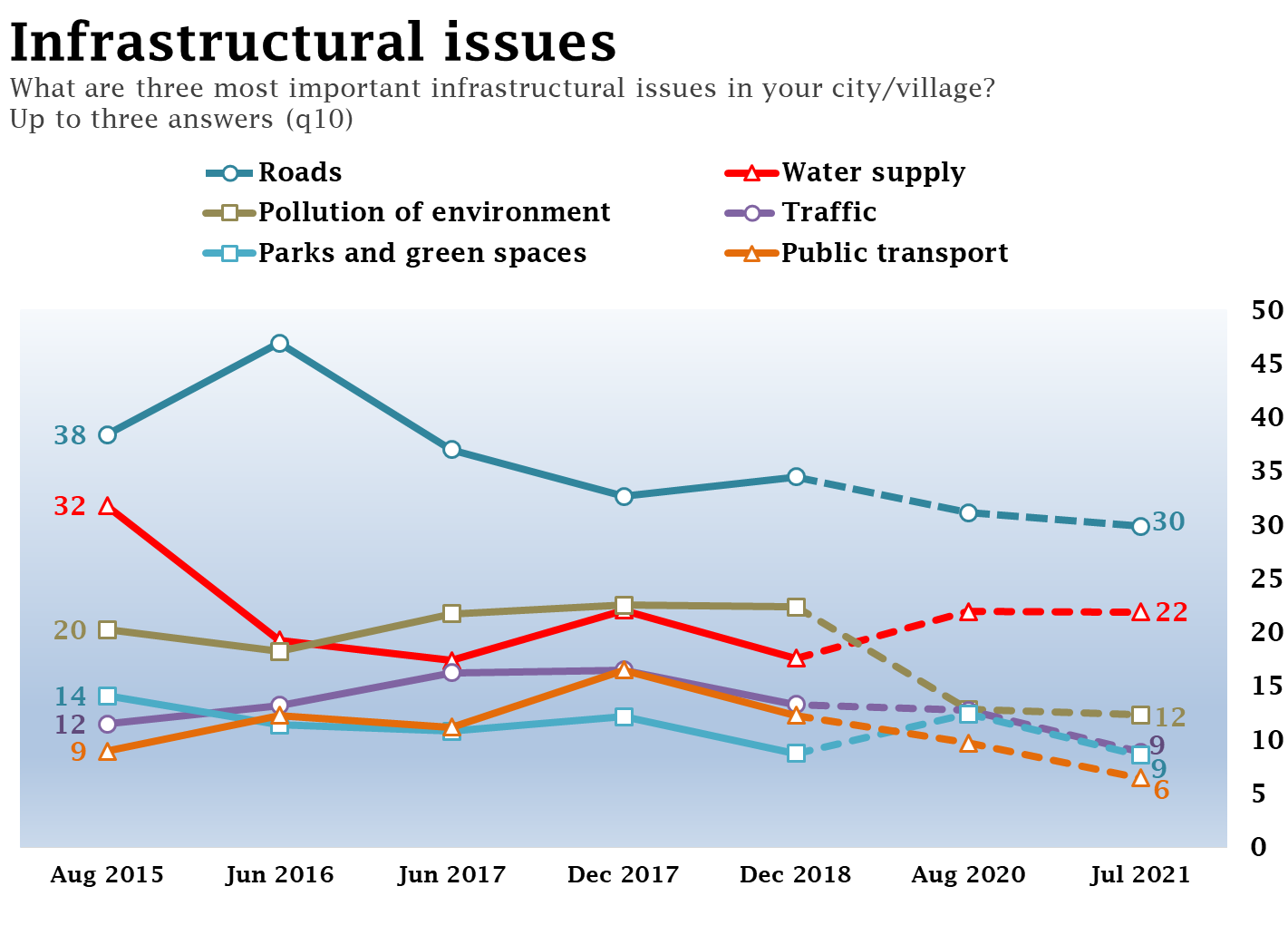
Whose priorities?
The data suggests that the main factor associated with people’s views of the above issues is what type of settlement they live in. People in rural areas are six times more likely to report that the water supply is a problem in their settlement compared with people in Tbilisi, controlling for other factors.
They are also twice as likely as people in the capital to report roads among the main public goods issues in their settlement. By comparison, people in Tbilisi are three times more likely to report that the environment and pollution are more important, controlling for other factors.
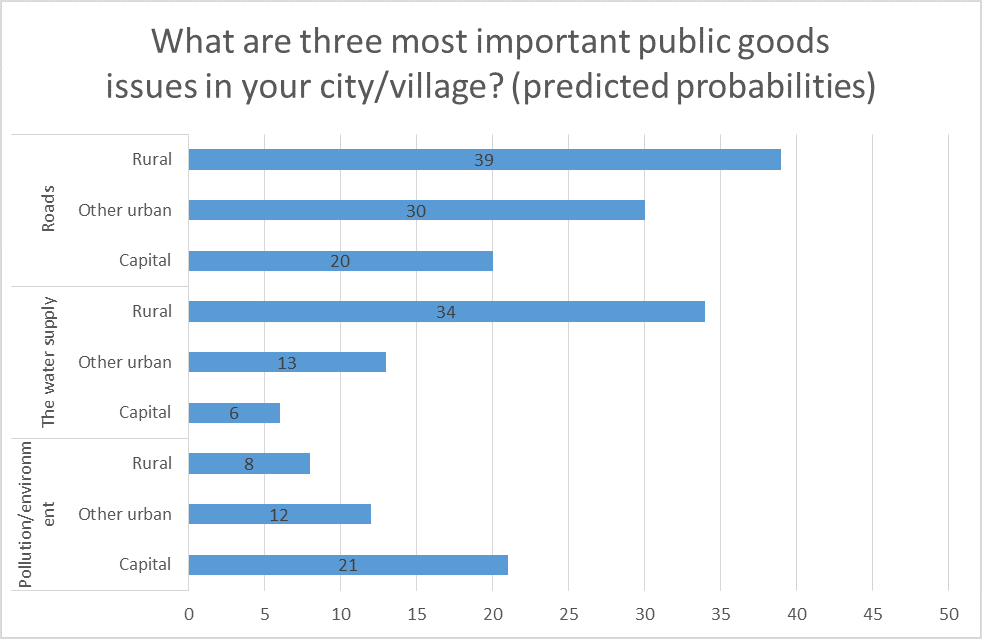
Attitudes also vary based on party support, when controlling for other factors. Opposition supporters are slightly more likely to care about the environment as well as roads. Georgian Dream supporters are slightly less likely to consider water a key concern.
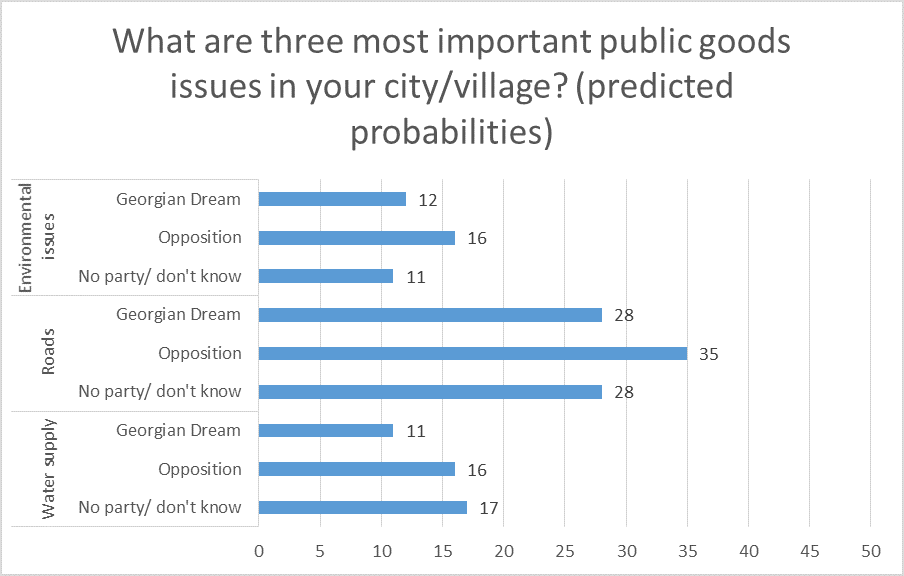
The data suggest that there are no significant interactions between party support and settlement type. This means that the differences between supporters of different parties and between people living in different settlement types hold despite their settlement type or which party they support.
Aside from this, wealth is associated with whether or not someone named the environment and the water supply.
People in the poorest households had a 22% chance of naming the water supply compared to an 11% chance in the wealthier households in the survey, controlling for other factors. Conversely, people in wealthier households had a 20% chance of naming the environment, while those in the poorest households had a 6% chance, controlling for other factors.
Older people were 11 percentage points less likely to name roads.
For political parties looking to campaign in the upcoming elections on policy rather than personality, the above data provides a few ideas. Notably, people in rural areas are more interested in roads and water, while people in Tbilisi are more interested in the environment and pollution. For parties looking to attract unaffiliated voters, promising to improve roads might be a good place to start.
Note: This analysis of which issues are most important is based on a logistic regression analysis. As control variables, it includes settlement type (Tbilisi, other urban, rural), age group (18–34, 35–54, 55+), ethnicity (minority or not), wealth (a simple additive index of durable goods a household owns), sex (male or female), education level (tertiary education or not), and political party (don’t know/no party, opposition supporter, or Georgian Dream supporter).
The views presented in the article do not represent the views of the National Democratic Institute, CRRC Georgia or any related entity.




 7 September 2021
7 September 2021
